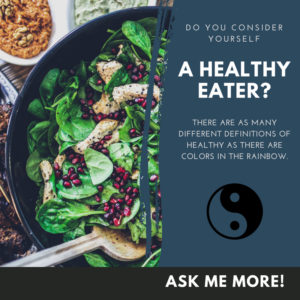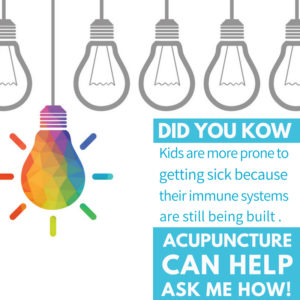- Mountain View Clinic1 Allenton Drive,
Old Court
Tallaght, Dublin 24.For Acupuncture Call Dermot on (085) 703-3087
For Counselling Call Teresa on (087) 6715212 Clinic Hours
Mon10am to 9pmTue10am to 5pmWed10am to 9pmThu10am to 9pmFri10am to 9pmSat10 am to 5.30 pm
Uncategorized
How Stress Physically Affects Your Body

Stress. It’s not a word that makes most of us feel elated or excited. However, stress, by design, is the body’s way of signaling for help or a break in the routine. If we don’t listen to these signals, we can develop imbalances in our bodies, which can then lead to illnesses.
The dictionary defines stress in multiple ways, but there is only one that matters when we discuss how stress affects our physical bodies. The definition is this, “stress is a physical, chemical or emotional factor that causes bodily or mental tension”. The definition itself indicates stress can affect our bodies.
One of the most visible way stress affects our bodies is our appearance. People who are under chronic pressure and stress tend to look older and fatigued. This happens because cortisol, the stress hormone in our bodies, builds up, which then increases the amount of free radicals in skin cells. Free radicals damage the skin cells causing them to become dull and dehydrated. Women typically show this more than men.
Another big player in the stress game is digestion. Many people today suffer from heartburn and upset stomach on a regular basis. These symptoms can be caused by excess stress. Stress causes the body to alter gastrointestinal motility by moving blood normally used in the digestive process, away from your belly and midsection, as part of the “fight or flight” response that usually occurs when you are stressed. Thus, the lack of blood and fluids in the gastrointestinal tract can lead to increases in stomach acid, causing stomach upset and heartburn.
Minor stress will stimulate the immune system which helps us heal from illness and disease. However, chronic stress can actually compromise the immune system, once again due to the cortisol hormone. Chronic stress sufferers tend to get sick more often and the illnesses may last longer. This is also a factor in people who develop terminal illnesses like cancer.
Excess stress can cause your heart to work too hard and usually for too long a period. These factors can then lead to sustained increased blood pressures or hypertension. Hypertension puts more stress on your blood vessels, which can increase your possibility of a stroke or heart attack.
Chronic stress can also be detrimental to your muscles and can then lead to chronic aches and pains. Muscles are supposed to tense up when under stress. But when you are constantly stressed, the muscles never get the chance to completely relax. Tight muscles result in headaches, back, neck and shoulder pain. Over time, those tight muscles and chronic pain can cause many to seek pain relief through prescription pain medications.
That’s the bad news. The good news is you can address and treat stress naturally. Getting proper nutrition and removing stressors will help greatly. Acupuncture is also a wonderful tool for fighting stress. As few as two needles can reset your body and decrease your daily stress levels. Another method is to couple acupuncture with practices like qigong, tai chi, and/or meditation. Talk with an acupuncturist to find out how to resolve your stress the natural way.
The Common Cold
 TCM and Cold Prevention
TCM and Cold Prevention
A study published by the Journal of Traditional Chinese Medicine concludes acupuncture treatments can indeed help treat the common cold. The study followed 187 participants based on the onset of when the cold occurred. The participants were divided into two groups. The first group reported an onset time of cold symptoms within 36 hours and the second group reported an onset of symptoms greater than 36 hours. Both groups showed significant decreases in symptoms, as well as cold duration. This study demonstrates how receiving acupuncture treatments can shorten the length of time a person deals with the common cold and its symptoms.
Everybody has suffered from the common cold at some point along this journey called life. The common cold is an acute viral infection that affects the throat and nasal passages. Symptoms of a cold may include headaches, fatigue, a sore throat, nasal congestion, sneezing, a runny nose and coughing. With the normal progression of a cold, the throat symptoms, such as coughing, tend to be worse around the fifth day, while the nasal symptoms are nearing the end of their duration. Overall, the symptoms of the common cold tend to last about seven to 10 days. The typical treatment for a cold is to make sure you are getting plenty of sleep, taking in enough fluids and using steam to break up the mucus in the nasal passages. Because the common cold is caused by a viral infection, the virus must be allowed to run its course, while the symptoms are merely managed.
Traditional Chinese Medicine (TCM) takes a different approach though. It utilizes modalities like acupuncture, cupping and herbal formulas that can dramatically decrease the severity of symptoms and time that somebody suffers from a cold.
The practice of acupuncture is supposed to be used as preventive medicine. Not to say acupuncture can’t be used to treat already existing ailments, because it can, and it works very well in this capacity, but isn’t it better to avoid getting sick than to wait until the ailment is already affecting you? This is where acupuncture can help. Regular acupuncture treatments can increase your immunity, which will help fight off any disease, including the common cold. Acupuncture also helps decrease stress which can be a key factor in any disease. Studies indicate when the body is relaxed and not stressed, the immune system functions more efficiently.
Cupping, another technique utilized in TCM, helps boost the immune system. Cupping creates negative pressure that suctions the skin into the cup. This action causes the cells in the body to develop a greater number of receptors on the surface that can better respond to an enzyme known as heme oxygenase 1. This enzyme acts as an antioxidant that protects your body against harmful elements like the common cold virus.
With all this evidence, it makes perfect sense to start using Traditional Chinese Medicine as a method of preventing the common cold.
Healthy Eating
Healthy Eating According to Traditional Chinese Medicine

Do you consider yourself a healthy eater? Do you follow the guidelines set forth by the government for healthy eating? Or have you gone rogue? There are as many different definitions of healthy as there are colours in the rainbow. But according to traditional Chinese medicine, there are certain guidelines that will keep the body happy and healthy throughout life. Let’s explore this a little deeper.
The Traditional Chinese Medicine diet is based on energetic principles that encourage balance, clean burning digestion and a well-functioning body that remains free of disease and full of energy. Eating for balance is a way of life in Traditional Chinese Medicine theory. There are certain foods that help the digestive system function properly and allow the body to utilize the nutrients it needs to perform. When food enters the mouth, it travels through the stomach and intestines. This is where the energy is extracted from the food and the waste products are excreted. The energy that was extracted becomes your life force or Qi (pronounced “chee”). Digestion, in TCM theory, should be an unnoticeable event. The digestive system should be clean and quiet, allowing the body to extract the most nutrition and energy from the food that is ingested. If the digestive system becomes clogged, the energy does not get adequately absorbed and there is leftover residue that sticks to places within the body thus causing blockages and affecting the body’s daily functions.
Dampness is the most common by-product of eating foods that create blockages in the digestive system. Foods that create dampness include cheese, yogurt, white flour and sugar. Dampness causes blockages or stagnations that can then lead to pain and disease. Symptoms of accumulated dampness include mucus, loose stools or constipation, excess weight gain and swollen joints. Chronic allergies and arthritis are two Western medicine diseases that are very closely linked to dampness.
To avoid disease, the TCM diet recommends things like steamed rice, cooked vegetables and small quantities of animal protein. Vegetables play a major role in draining dampness and are packed with nutrition. The more colourful the vegetables, the healthier they are for the body, as they contain lots of antioxidants that promote health and longevity. Your plate should begin with large quantities of brightly coloured and lightly cooked vegetables. Leafy greens are very important also as they are some of the most balancing and nutrient dense foods available.
Rice is a balanced food that is easily digested. Rice is also hypo-allergenic and this is advantageous to those who are dealing with allergies as it is very gentle on the digestive system. White rice tends to be more cleansing, while brown rice is considered more nourishing. Rice is a clean burning food that gently drains dampness from the body.
Protein is the final component of a healthy TCM diet. Animal proteins and beans are difficult to digest and therefore are only suggested in small quantities. Beans are better overall than animal proteins as they do help absorb dampness and they provide fibre.
There are several things that should be avoided in the TCM diet. Dairy is one of the biggest culprits of creating dampness. It is also cold in nature and this is a hindrance to the digestion. Cold, raw foods are culprits in the formation of dampness, as it is difficult for the body to process them. This is why foods ingested should be at least at body temperature. When the body has to heat the food, it drains the energetic resources of the body, which weakens the body over time. So things like salads, chilled food, iced drinks and frozen foods should not be included in the daily diet.
When it comes to healthy eating, it is obvious that most of the United States doesn’t adhere to the aforementioned guidelines. If you are truly trying to eat healthy and you are dealing with illness, why not consider trying the TCM way of eating? You might be surprised at how your body changes.
Acupuncture and children’s Immunity
TCM and Acupuncture: Improving Children’s Immune System
Acupuncture is part of an ancient medical system known as Traditional Chinese Medicine (TCM). It is commonly used to treat a multitude of ailments in adults and is gaining popularity among pediatrics. There are licensed acupuncturists who specialize in treating children and are in high demand. These pediatric acupuncturists are helping children where others can’t and for many, it is lifesaving.
Most kids, as well as a lot of adults, are afraid of needles. So the pairing of acupuncture and kids might not be an obvious one. However, more and more parents are seeking alternative methods of treatment for their children. This is because our conventional medical system is faltering a bit. Pharmaceuticals are proving to be more harmful than beneficial for many, especially kids. And with the bodies and brains of children still being developed, who can really blame a parent for wanting to find an alternative to drugs with adverse side effects?
Parents are turning to acupuncture because it provides a safe resolution of illness, while also preventing future illnesses. This happens because acupuncture and acupressure stimulate the body’s ability to restore and heal itself. Our bodies are fully capable of fighting off disease and healing injuries when the right tools are provided. Acupuncture not only stimulates the immune system, but also relaxes the nervous system and regulates the digestive and hormonal systems. All of these things need to be in balance for the body to heal.
Kids are more prone to getting sick because their immune systems are still being built. Children also tend to be more susceptible to bacteria and viruses because of their immature immune systems. For some kids, school can create added stress that taxes the immune system. There are a lot of factors involved when it comes to staying healthy. This is where TCM can be very beneficial.
TCM approaches illness and ailments from a very different angle. In TCM, wind is one of the six external pathogens that can invade the body and produce symptoms. The external pathogens responsible for the cold are seen as invasions of wind. The body is protected by something known as the Wei Qi (defensive Qi, pronounced “way chee”). The Wei Qi is comparable to the immune system in conventional medicine and acts as the first line of defence when the body is under attack from external pathogens. If the Wei Qi is strong, then the body is capable of fighting off invaders like viruses and bacteria. The Wei Qi keeps the pores of the skin closed and prevents wind from entering.
There are specific acupressure points on the body that can help improve a child’s immune system. There are also other techniques that are used in TCM that may help, like gua sha or cupping. Both of these techniques stimulate blood flow and help remove toxins through the skin, which can boost immunity.
Not only is acupuncture cost effective for treating children, but it is a logical approach to healing their illnesses.
Sports Injury

A lot of people come to my practise as a last resort in an attempt to help with sports injuries, they see their doc’ try physio’ massage and if they don’t get a result they try acupuncture. I have seen this scenario play out so many times and always ”think if they had just come to me first,” Unless it is a very serious injury acupuncture is very adept at healing strains,sprains, muscle tightness and muscle fatigue, so what are you waiting for? give me a call and lets get the ball rolling, so to speak.
